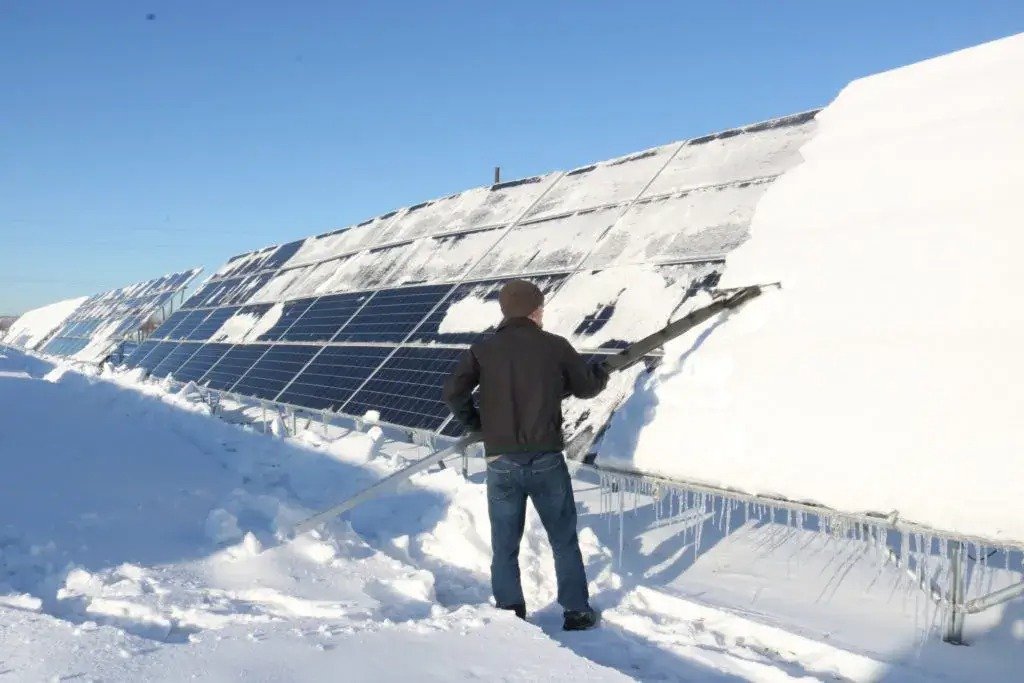IN THIS LESSON
In this lesson, you’ll learn how cloudy days and winter weather impact solar panel efficiency and how solar systems are designed to perform even in less-than-ideal conditions. We'll also cover some tips on maximizing solar output during seasonal changes.
How Winter Weather Affects Solar Panels
While winter brings shorter days and less direct sunlight, solar panels can still perform well, especially in clear, cold conditions.
1. Snow Reflection
Snow can actually benefit solar panels by reflecting sunlight, increasing the amount of light reaching the panels. In some cases, this can enhance efficiency on clear winter days.
2. Cold Temperatures
Solar panels operate more efficiently in colder temperatures. High temperatures can reduce panel efficiency, so the cooler winter weather can actually improve performance.
3. Snow Coverage
Although heavy snowfall can temporarily cover solar panels and block sunlight, most systems are installed at angles that allow snow to slide off. Additionally, light snowfall often melts quickly due to the heat retained by the panels.
4. Less Sunlight Hours
While shorter days do mean fewer hours of sunlight, solar panels continue to produce energy as long as there’s daylight. Advances in solar technology allow panels to make the most of available light, even in winter conditions.
Curious About Solar in Your Climate?
Find out how solar can work for you in any season! Get a Free Estimate with SolarShip Corp and explore the benefits of year-round solar power.




